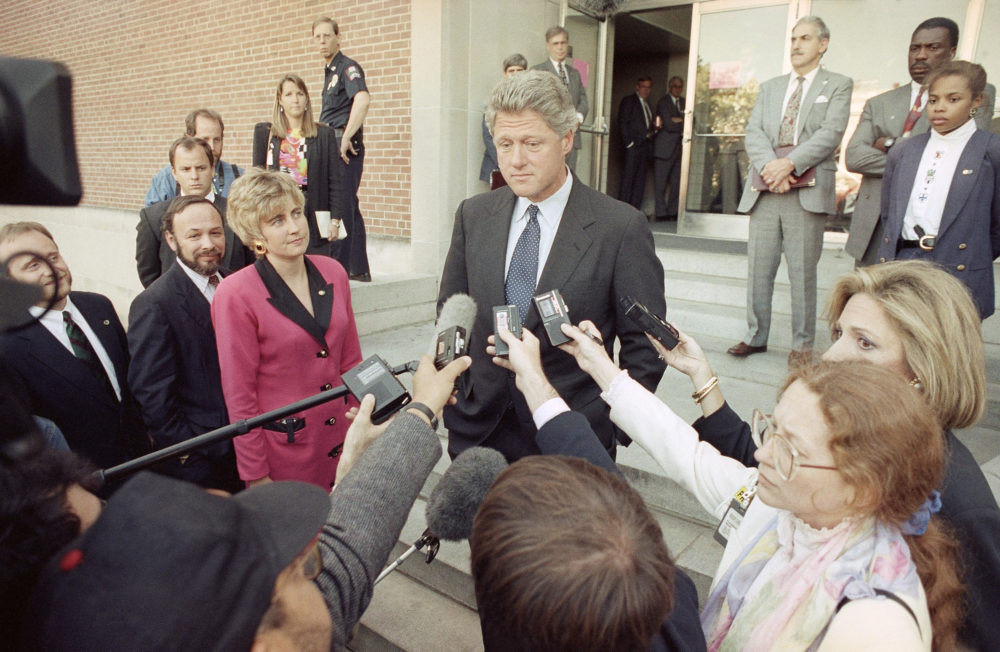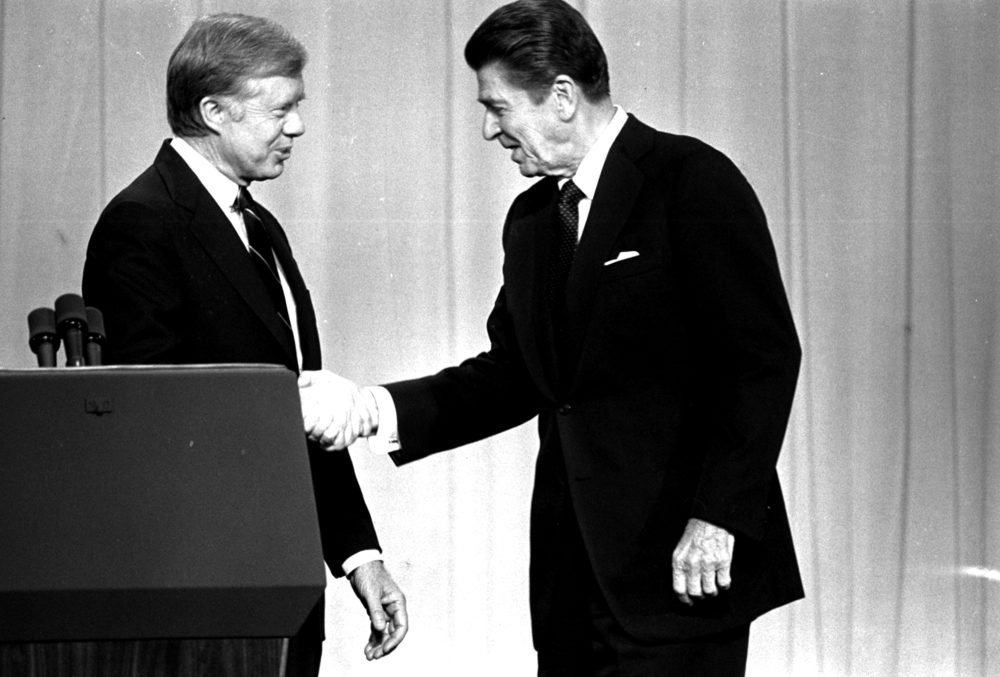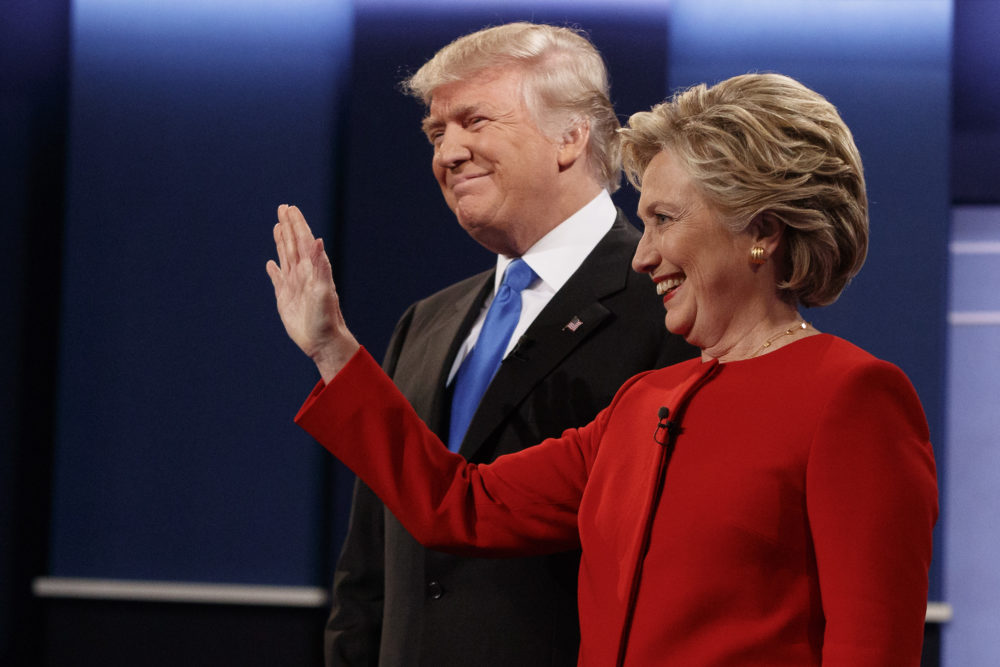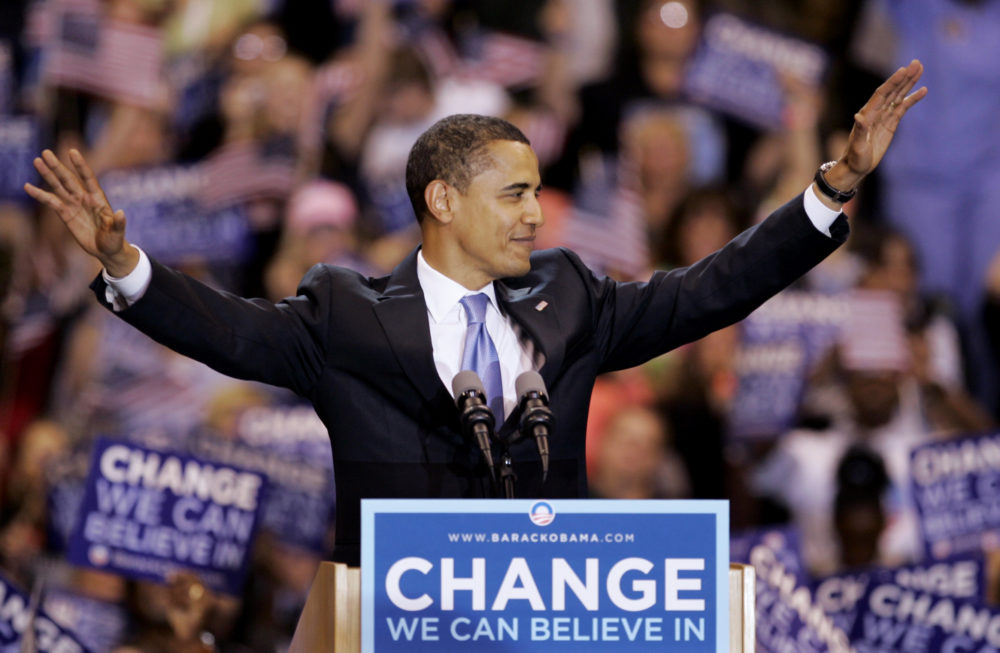Advertisement
Can You Tell How Electable A Candidate Is?
Democrats are debating which candidate will be the most electable on the ballot next to President Donald Trump with the election just 14 months away.
Democratic frontrunner Joe Biden is staking his campaign on the argument he would be the most likely to win, but many candidates who have been thought to be unelectable in the past — from Ronald Reagan to Bill Clinton to Barack Obama — have won elections.
“You could find lots of examples of candidates who were kind of pilloried as being, quote, unelectable who ended up becoming president,” says Kyle Kondik, a political analyst with the website Sabato's Crystal Ball, part of the University of Virginia Center for Politics. “Obviously, Donald Trump is a great example of that.”

The act of determining “who can win an election and who can't has to be as old as democracy itself,” according to Kondik (@kkondik), and when considering the electability factor, voters are not just doing it for themselves, they’re also trying to figure out “who their friends and neighbors might like.”
“In a large field of Democratic candidates as we have now, I think it's hard enough for individual voters to figure out who they like, let alone trying to figure out who their friends and neighbors might like,” he says.
Interview Highlights
On Reagan’s 1980 election
“There were a lot of people — including Gerald Ford, at that time the most recent Republican president — who basically argued that Reagan was too conservative to get elected, that he was the next version of Barry Goldwater, the Republican who lost in a landslide to Lyndon Johnson in 1964. And Reagan ended up winning pretty comfortably in 1980 and arguably resetting the course of American politics and putting it in a more conservative direction.”

On Trump’s 2016 election, and comparing politics now to decades ago
“I think that Trump's election sort of expanded the bounds of what analysts should consider in terms of who's electable and who is not. And also, I think that American politics has changed to the point where more people maybe are electable than one might have thought before.
“The classic examples of, quote, unelectable candidates were Barry Goldwater in 1964, lost in a landslide to Lyndon Johnson, and then eight years later, George McGovern lost in a landslide to Richard Nixon. But keep in mind that election structure was different back then and that voters were much likelier to be able to split their tickets. Voters migrated between the parties much more back then than they do now, and so I think that any nominee of either major party — in an era where we have very closely divided elections — is inherently electable, because fundamentally I think the Republican or Democratic nominee starts with something of a high floor.
Advertisement
“Because the country is so polarized because voters are so unwilling to vote for the other party, I think that sort of makes the nominee of either party inherently more electable than maybe they were 30, 40 years ago when the electorate was more flexible and we had more blowout elections.”
On campaign gaffes that would normally wreck candidates’ electability chances
“I just think back to all of the, quote, gaffes that become a part of the lore of these presidential elections, and Trump I think breaks the mold there too in that he has said and done so many outrageous things, and yet in some ways, he hasn't paid a price for them. Although, I would argue that if he were a more conventional president, I think his popularity would be a little bit better, and he would be I think in a better position to win reelection in 2020. But also I think that in some ways, Trump sort of changed the definition I think of what a presidential candidate was, and I think some people like that, particularly in the Republican Party.”
On whether he thinks electability is a higher priority now for voters ahead of the 2020 presidential election
“For Democratic primary voters, I think it certainly is. You see this in opinion polls, people seem to, and also sort of anecdotally, [be] asking people what they value in a candidate. I think electability rates up there. You've heard countless examples of voters saying that, oh, well, maybe they like Elizabeth Warren, but they're worried as to whether she can win or not. A lot of people see Joe Biden as being the, quote, most electable candidate. But ultimately, you don't really know.
“I mean, we're basing a lot of this off of hypothetical horse-race election polls that match Biden against Trump and then Warren against Trump, and usually Biden does better than the other Democratic candidates. But there have been some recent surveys that have shown all the candidates doing pretty well against Trump, and Biden may just be doing better because he has better name identification or he is sort of more of a proven commodity.
“But also, these polls aren't really predictive so far out in advance. Certainly, there were a lot of polls suggesting that Donald Trump was the weakest candidate against Hillary Clinton at this time in the 2016 cycle, and while it may be that any Republican would have won the presidency against Clinton in 2016, we don't know that. And Donald Trump had unique appeal in certain electorally important places, particularly in the Midwest, that maybe some of these other Republicans couldn't have matched.

“And so, maybe it is that Biden is the most electable candidate, but it could also be that if the Democrats roll the dice and nominated Bernie Sanders, Elizabeth Warren, maybe they would bring something special to the table that Biden didn't have.”
On how much race, gender and sexual orientation play into people’s perceived notions of electability
“Again, this is something that you hear anecdotally from voters that, because Clinton didn't beat Trump in 2016, there is this assumption that the Democrats need to nominate a straight white male to be the presidential nominee. And I guess I personally don't really see that.
“I mean, Clinton did win the popular vote, despite again being kind of a flawed candidate running in kind of a challenging electoral environment, in that she was effectively running for Barack Obama's third term. Obama's approval was OK. The economy was OK. But it wasn't necessarily a situation where you wanted to be kind of the incumbent party presidential candidate as opposed to the challenger. I think Trump did benefit from just being the sort of the change agent in that election.

“Some of this is that the Democratic electorate just wants to be kind of ‘small-c’ conservative in who they choose, but maybe that's really not the right approach. I mean, say what you want about Trump, but it may have been that Trump was the right person to win. Obviously, he did, and maybe he was the only one who could have won.”
On whether he thinks voters are missing out on more substantive conversations when focusing on electability
“Well, I do think there's some truth to that, although I think also voters care about the horse race too, and they're interested in the horse race. And even though I kind of wish that specific policies were kind of more of the discussion, I think voters also inherently care about who's up and who's down and ultimately who can win. They may not necessarily make the right judgments about that, and certainly, I don't think that the analysts always make the right judgments about who is electable and who is not.”
Jill Ryan produced and edited this interview for broadcast with Kathleen McKenna. Jackson Cote adapted it for the web.
This segment aired on September 5, 2019.
